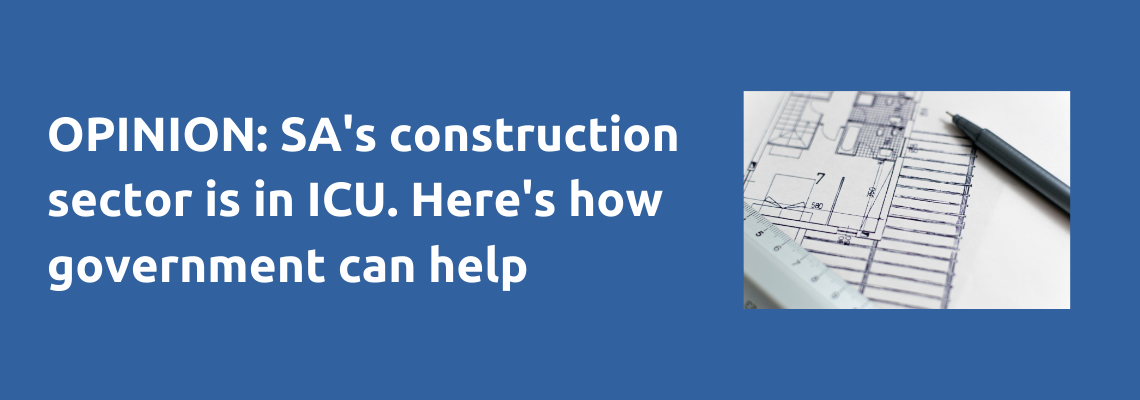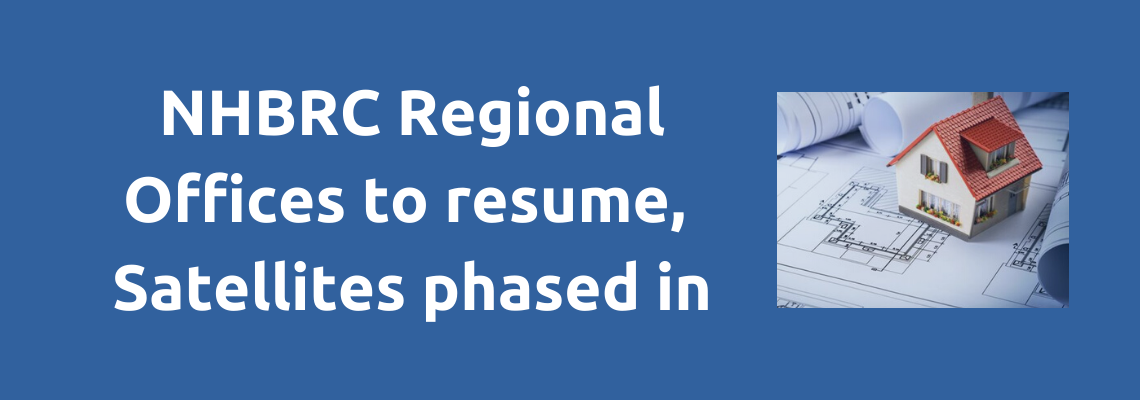
Like most sectors of the economy, the South African construction sector has been struggling prior to the lockdown instituted by government in response to the Covid-19 pandemic. This restriction on almost of all projects further pushed already struggling construction companies down the cliff.
All comes against the backdrop of well-known industry issues such as declining government infrastructure spend poor payment practices within sector’s supply chains and more importantly, the broken industry operating model that is no longer fit for purpose.
This declining trend in public infrastructure spend is largely due to municipalities and state-owned companies substantially reducing their spending over the past few years. Transnet, Eskom and several major state-owned companies have struggled to access capital markets to finance capital projects and infrastructure programmes.
Most municipalities have been consistently underspending on conditional infrastructure grants and are they are not collecting enough revenues to finance their capital budgets. The same trend is visible in infrastructure spending as a percentage of GDP. Government can change this.
For instance, without even lifting a finger, the government can consider practical and actionable strategies already presented and tabled by the industry.
In response to Covid-19, the construction sector has since formed a Construction Sector Covid-19 Task Team, currently comprised of over 30 organisations representing major suppliers, contractors, regulators, professional associations and built environment professional services firms. This Task Team has since worked with government to develop an industry-specific Covid-19 Construction Health & Safety Protocol. Furthermore, the Task Team has submitted a comprehensive short to medium term plan government of actionable reforms to help the sector recover.
This initiative shows that the construction sector is already working together to respond to the impact of the Covid-19 and ensure sustainability of the industry over the coming weeks and months, as well as to enable it to play a full part in South Africa’s economic recovery as the global search for vaccine progresses.
However, the sector also needs support and a clear commitment from government expedite various infrastructure policy reforms.
1. A predictable and reliable long-term infrastructure pipeline
A forward-looking pipeline of planned projects and programmes of economic and social infrastructure is urgently required to help construction companies understand which infrastructure investments government is currently prioritising. By publishing the pipeline, the government will help provide visibility, knowledge and understanding of where infrastructure investment is being made and by whom. Publishing projections of longer-term infrastructure investment will boost market confidence and will help the sector with business planning. This is important because the 18 Strategic Infrastructure Projects (SIPs) which were coordinated by the Presidential Coordinating Infrastructure Commission established during the Zuma administration lacked transparency and to this day no one has a clue about their progress. The recent announcement that the Presidency will host the inaugural Sustainable Infrastructure Development Symposium is a step in the right direction.
2. A single government body to coordinate infrastructure planning
The government should establish under the Department of Public Works and Infrastructure an infrastructure planning and coordinating body that will combine fragmented efforts and infrastructure related work currently done in different government departments. The Budget Facility for Infrastructure within Treasury, the GTAC Capital Projects Unit, the Presidential Infrastructure Coordinating Commission within Trade, Industry and Economic Development, the Public-Private Partnerships Unit within Treasury and ultimately the newly established Presidential Office for Investment and Infrastructure led by Dr.Kgosientsho Ramokgopa should all be merged into a single entity will coordinate all infrastructure planning and coordinating efforts of national, provincial, local government and major state-owned enterprises. This has obvious benefits for the sector. The current level of fragmentation is problematic and wasteful. The lack of transparency by DBSA on the R100bn Infrastructure Fund is also concerning.
3. The use of innovative infrastructure procurement delivery methods
Government should also commit to moving away from the unsustainable transactional and cost-driven procurement of infrastructure and instead embrace the creation of value-driven, collaborative procurement methods that can deliver investment programmes that secure the outcomes demanded by clients and the public. The use of alliance contracting, integrated project delivery and design-build procurement could help address the gaps and failures presented by the current traditional construction procurement delivery approach.
The myth that lowest cost equals best value only survives because of the lack of best value options to compare it with. Furthermore, the processes of designing infrastructure, obtaining tenders, administering contracts and dealing with claims all incur transaction costs, management costs and overheads down the supply chain. These costs are embedded in every price submitted by tenderers and in the final price paid by the owner. The construction industry shows little interest in measuring these costs in a consistent manner and this lack of transparency. Government can change this.
South Africa needs high performing infrastructure. Without it we have little hope of improving the productivity of our economy. Without an improvement in productivity, we will not be able to secure the quality of life demanded by our growing population. Yet the model we use to deliver and operate much of our infrastructure is broken. Too often it produces assets and networks that are expensive, perform poorly and fail to exploit the advances in technology that are transforming other industries. Too often the supply chain that delivers our infrastructure seems locked into a cycle of low margins, low investment and dysfunctional relationships. Covid-19 has presented our government with an opportunity to change this.
By Mr, Ronnie Siphika is the Chief Executive at Construction Management Foundation and member in the Construction Sector Covid-19 Rapid Response Task Team.
Source
To view more Articles, please visit our Leads 2 Business Blog.
If you are interested in becoming one of our subscribers, please visit Leads 2 Business.
To view notes with screenshots on how to use our website, please visit Leads 2 Business Wiki.
Millennial Mom + wife living the hash-tag life. Remember: If You Fail - Fail Forward






